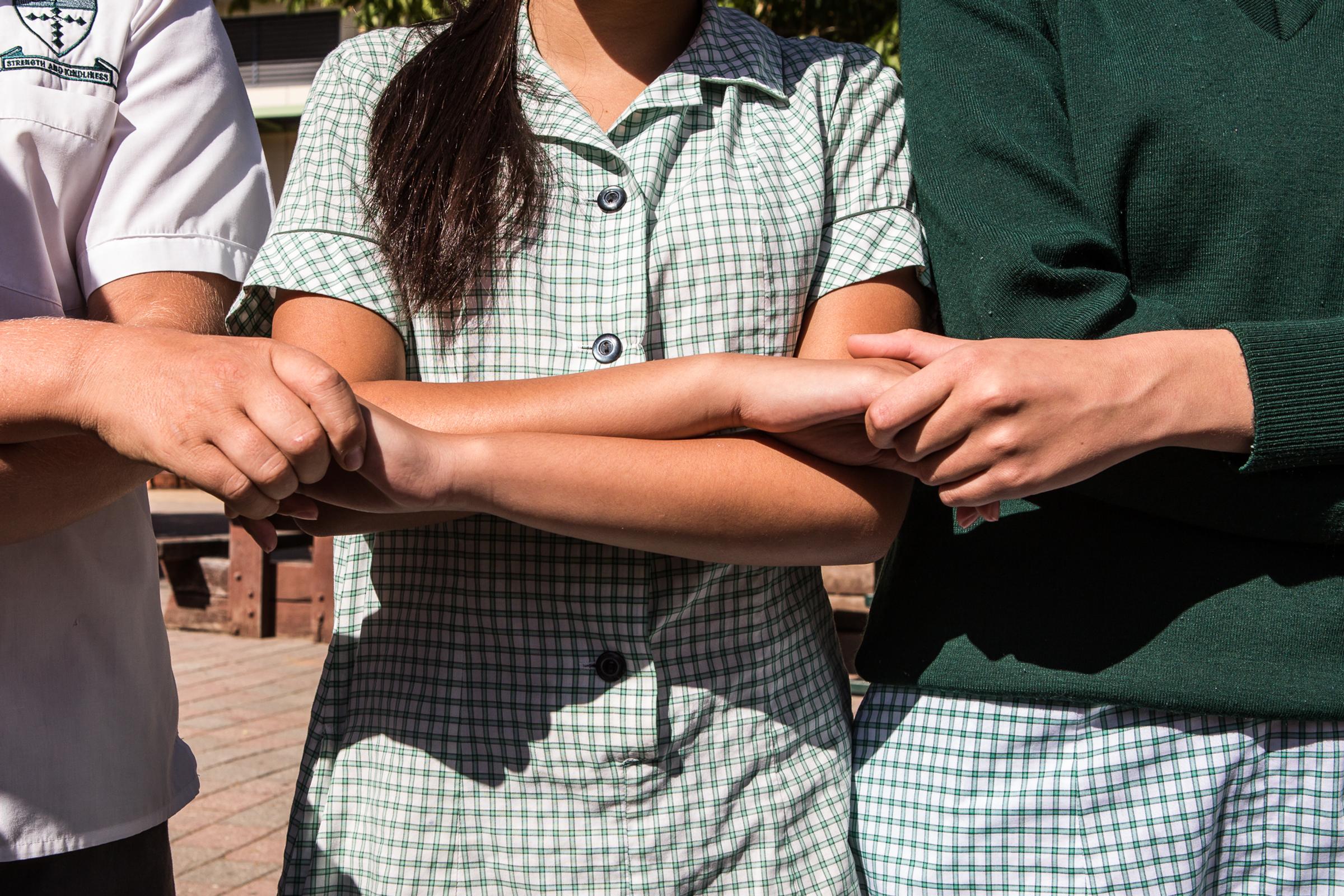Pastoral Care and Wellbeing News

R U OK? DAY
10th September 2020 is National R U OK? Day. R U OK? is a national charity inspiring and empowering everyone to meaningfully connect with people around them and support anyone struggling with life.
The theme for 2020 is “There is more to say, after R U OK?”
Looking out for one another and lending support are key life skills for any age group. Listed here are some ideas from R U OK? on when, and how to, support a young person who may not be feeling ok.
A range of circumstances may lead to a young person feeling low, including:
- Big life changes like moving school
- Experiencing grief or loss
- Being around people going through tough times
- Being bullied
- Arguing with someone
- Problems with school work
- Being bored
- Having a medical condition or chronic illness
- Not sleeping well
- Not exercising enough
- Hormonal changes
- Special needs.
Be aware of certain behaviours or signs that indicate a young person might be struggling. The first thing to look out for is changes in behaviour. When people feel low, they often:
- Withdraw from their friends or family
- Lash out at people and get angry or upset really easily, including towards people the care about
- Cry or become emotional
- Lose interest in activities and things they usually enjoy
- Have changed sleeping patterns. They might be sleeping all the time not sleeping much at all or sleeping strange hours (such as the middle of the day)
- Have a changed appetite. They could be eating more than usual, or less.
Young people cannot be expected to fix someone’s problems, nor know the best way to help and support.
However, they can listen to what their friend is saying, let them know they care and tell a teacher, school counsellor or trusted adult if they are worried about their friend.
By promoting an environment of positive peer support and accessing support channels via an adult, young people can learn that asking R U OK? is a key life skill.
R U OK? has four conversation steps to help navigate a conversation when someone says, “No, I’m not ok.” These steps are:
o Ask
o Listen
o Encourage action
o Check in.
Useful contacts when a young person might not be OK:
o School Counsellor
o GP or Psychologist
o Kids Helpline on 1800 55 1800
o Lifeline on 13 11 14
o Dial 000 if someone’s life is in imminent danger.
While cultivating a positive mind-set is a powerful coping mechanism, the ‘good vibes only’ concept can suggest to oneself or others that the best or only way to cope with a bad situation is to put a positive spin on it and not dwell on the negative.
It’s an attractive behaviour in people, and people who are generally upbeat aren’t the issue. It’s a problem when people feel pressured to be positive in situations where it’s not natural or when there’s a problem that legitimately needs to be addressed; take for example the current pandemic across the world. People judge themselves for feeling pain, sadness or fear, which then produces feelings of things like shame and guilt. We end up just feeling bad about feeling bad. It actually stalls out any emotional healing or progress or problem solving.
Research has shown that accepting negative emotions, rather than avoiding or dismissing them, may actually be more beneficial for a person’s mental health in the long run. It’s important for people to normalize and label their experiences while removing any expectations and goals that they should feel better than they do.
It’s okay to have a positive and optimistic outlook and feel sad at the same time. We can feel sad and be grieving, and still look forward to the future. Both of those are necessary for a healthy outlook and sense of well being.
Full article extracted from: https://www.washingtonpost.com/lifestyle/wellness/toxic-positivity-mental-health-covid/2020/08/19/5dff8d16-e0c8-11ea-8181-606e603bb1c4_story.html?outputType=amp
Celebrating Success ~ Student Commendations!
Did you know you can see your student’s Commendations in PAM? Commendations are an amazing way for staff to acknowledge the extraordinary and awesome efforts of our students.
Commendations celebrate effort and achievement in the areas of academia, pastoral, sporting, community involvement and social justice actions. They are also noted, acknowledged and celebrated in House Assemblies on Tuesday's.
We encourage you to regularly check PAM for information about your student’s learning, and whilst there, check the Commendations tab!
Teens and Social Media
Parents and guardians often feel that social media is a challenging area to discuss and manage with their children. Here is a fantastic article from the eSafety Commissioner to assist with supporting, understanding, assisting and monitoring social media for our young people. This can further help us assist them to navigate any challenging or negative situations and ensure they are using social media positively and in a beneficial way.
https://www.esafety.gov.au Tips for Social Media
SchoolTV
Don’t forget to access our SchoolTV resources through our website, school links on SIMON/PAM, or via: https://sje.vic.schooltv.me/
If there is anything further we can assist with during this time, please contact the Wellbeing Team, your Learning Mentor or House Leader.
From the Wellbeing Team

